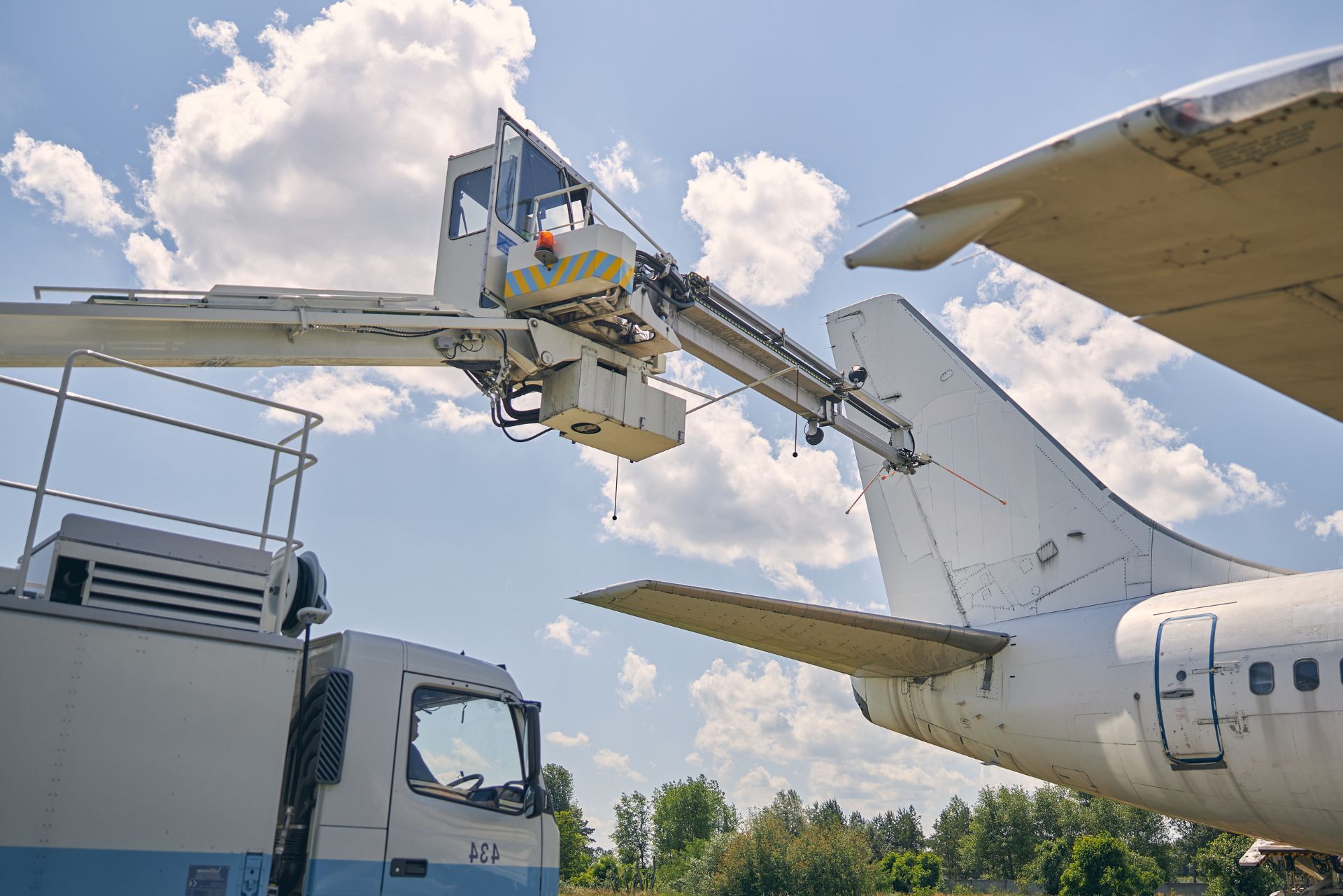Top 3 Recommended Policies

The aviation industry is a complex ecosystem where safety, regulation, and risk management intersect. Among the many critical components ensuring smooth operations, aviation fuel suppliers hold a pivotal role. Given the high stakes involved—from volatile fuel prices to geopolitical tensions—insurance for aviation fuel suppliers is not just a formality but a necessity. This comprehensive guide explores everything you need to know about aviation fuel supplier insurance, covering market trends, risk factors, and emerging challenges shaping this essential sector.
The Growing Importance of Aviation Fuel Supplier Insurance
In recent years, the aviation insurance market has seen significant growth, reflecting the increased demand for risk coverage across various aviation sectors. The aviation insurance market was valued at approximately US$4.5 billion in 2024 and is projected to grow to US$5.8 billion by 2030, expanding at a compound annual growth rate (CAGR) of 4.5%. This growth underscores the rising complexity and risk exposure within the aviation industry, including fuel supply chains.
For aviation fuel suppliers, insurance plays a crucial role in mitigating risks related to supply disruptions, environmental liabilities, and fluctuating fuel prices. The sector’s gross written premiums reached a 20-year high in 2024, exceeding US$8 billion, driven by increased air traffic and heightened demand for comprehensive coverage. This surge reflects how integral insurance has become in safeguarding the aviation fuel supply chain against unforeseen challenges.
The intricacies of aviation fuel supply chains are further complicated by geopolitical factors, regulatory changes, and technological advancements. Suppliers must navigate a landscape where international tensions can disrupt supply routes, and environmental regulations can impose additional liabilities. For instance, the push towards sustainable aviation fuels (SAFs) has created new opportunities but also necessitates a reevaluation of existing insurance policies to cover potential risks associated with innovative fuel technologies. As the industry shifts towards greener alternatives, insurance providers are adapting their offerings to meet the unique challenges posed by these emerging fuels, ensuring that suppliers are protected against both operational and environmental risks.
Understanding this broader market context is essential for aviation fuel suppliers seeking to navigate the evolving risk landscape effectively. The importance of tailored insurance solutions cannot be overstated, as they not only protect against financial losses but also enhance the credibility and reliability of suppliers in the eyes of their clients. For more detailed insights on the aviation insurance market trends,
Research and Markets provides an in-depth analysis.

Key Risks Faced by Aviation Fuel Suppliers
Aviation fuel suppliers operate within a high-risk environment influenced by market volatility, regulatory changes, and geopolitical factors. One of the most significant risks is price volatility, driven by fluctuating crude oil prices and refining costs. For instance, over 60% of global jet fuel contracts in 2023 incorporated crack spread differentials, a mechanism that helps refiners offset volatile processing costs. This trend highlights the financial uncertainty fuel suppliers must manage regularly. The unpredictability of prices can lead to budgetary constraints for airlines, which may subsequently impact their operational decisions, including flight frequency and route planning.
Another critical risk is supply chain disruption. Geopolitical tensions, such as export bans and sanctions, can severely impact fuel availability. A notable example is the 2025 UK High Court ruling on claims related to Russian aircraft lessors, which confirmed losses exceeding US$4.5 billion due to Russian export bans on leased aircraft. Although this case directly involves aircraft leasing, it illustrates how geopolitical factors can ripple through the aviation ecosystem, affecting fuel suppliers and insurers alike. Furthermore, natural disasters, such as hurricanes or earthquakes, can disrupt refining operations and transportation routes, further complicating the supply chain and leading to increased costs and delays.
Environmental and regulatory risks are also increasingly prominent. Aviation fuel suppliers must comply with stringent environmental standards, especially as the industry transitions toward sustainable aviation fuels (SAF) and hydrogen-based systems. These emerging technologies promise significant emissions reductions but also introduce new operational and liability considerations. As governments worldwide implement stricter regulations to combat climate change, fuel suppliers face pressure to innovate and adapt their practices to meet these evolving standards.
Environmental Liability and Emerging Technologies
The aviation sector is actively pursuing greener alternatives to traditional jet fuel. Sustainable Aviation Fuels (SAF) can reduce lifecycle carbon emissions by up to 80% while remaining compatible with existing infrastructure. Similarly, hydrogen-based propulsion systems show promise, achieving performance metrics close to traditional fuels with emissions reductions of up to 74.7%. These innovations are vital for meeting global climate goals but also pose novel risks for insurance providers and fuel suppliers. The development of SAF and hydrogen technologies requires significant investment in research and development, which can strain financial resources, particularly for smaller suppliers who may lack the capital to invest in these initiatives.
Insurance policies must adapt to cover potential liabilities arising from the production, storage, and distribution of these new fuel types. This includes risks related to technological failures, regulatory compliance, and environmental damage. Fuel suppliers investing in SAF and hydrogen fuels will need tailored insurance solutions that reflect these evolving challenges. Additionally, as the market for these alternative fuels grows, suppliers must navigate the complexities of certification and standardization, ensuring that their products meet both safety and performance benchmarks. The transition to greener fuels is not just a technical challenge; it also requires strategic partnerships and collaborations across the industry to foster innovation and share best practices, thereby mitigating risks associated with this transformative shift in aviation fuel supply.
Aviation fuel supplier insurance is multifaceted, designed to address the wide range of risks inherent in fuel supply operations. Key coverage types include:
- Property Insurance: Protects physical assets such as fuel storage facilities, pipelines, and transportation equipment from damage or loss.
- Liability Insurance: Covers third-party claims arising from environmental damage, spills, or accidents related to fuel supply activities.
- Business Interruption Insurance: Provides compensation for lost income due to supply chain disruptions or operational halts.
- Cyber Insurance: Addresses risks associated with cyberattacks, which are increasingly relevant as fuel supply systems become more digitized.
Given the complexity of aviation fuel supply chains, many suppliers seek multinational insurance programs. These allow coverage across multiple jurisdictions, accommodating the global nature of aviation operations and addressing geopolitical and regulatory concerns. Tom Fadden, Global Head of Aviation at Allianz Commercial, notes a growing interest in such international placements driven by these factors.
Fuel suppliers should work closely with insurers to craft bespoke policies that reflect their specific operational footprint and risk profile. This approach ensures comprehensive protection while optimizing premium costs.
Moreover, the aviation fuel sector is subject to stringent regulatory standards that vary by region, necessitating a thorough understanding of local laws and compliance requirements. Suppliers must navigate these complexities to ensure that their insurance policies align not only with their operational needs but also with the legal frameworks governing their activities. For instance, in regions with heightened environmental regulations, liability insurance may need to include specific endorsements to cover potential fines or remediation costs associated with spills or contamination incidents.
Additionally, as the industry evolves, emerging technologies and practices, such as sustainable aviation fuel (SAF) production and distribution, are becoming increasingly prevalent. Insurers are beginning to recognize the unique risks associated with these innovations, which may require specialized coverage options. By staying informed about industry trends and potential risks, aviation fuel suppliers can proactively adjust their insurance strategies to safeguard against future uncertainties while also capitalizing on new opportunities in the market.
Challenges and Trends Impacting Aviation Fuel Supplier Insurance
The aviation insurance market is currently navigating several challenges that directly affect fuel suppliers. The traditional market cycle has been disrupted by the pandemic and ongoing geopolitical conflicts, creating an "interesting and possibly unprecedented" environment, as described by Tom Fadden of Allianz Commercial. This disruption has led to increased premiums and stricter underwriting standards.
Moreover, legal pressures are mounting. The 2025 UK High Court ruling on Russian aircraft lessor claims exemplifies how legal disputes can impose significant financial burdens on aviation stakeholders. Fuel suppliers must be vigilant about contractual clauses and insurance terms that address such contingencies. The ramifications of these legal challenges extend beyond immediate financial implications, as they can also affect relationships with clients and partners, necessitating a thorough review of existing contracts to ensure compliance and protection against unforeseen liabilities.
Cybersecurity is another emerging concern. As fuel supply chains become more reliant on digital infrastructure, the risk of cyberattacks grows. Insurance products are evolving to include cyber risk coverage, protecting suppliers from data breaches, ransomware, and operational disruptions. The increasing sophistication of cyber threats means that fuel suppliers must not only invest in robust cybersecurity measures but also engage in continuous training for their employees to recognize and respond to potential threats. This dual approach will be essential in mitigating risks and ensuring that insurance coverage is both comprehensive and effective.
Market Consolidation and Innovation
The aviation insurance sector is also experiencing market consolidation and innovation. Insurers are increasingly leveraging Insurance-Linked Securities (ILS) to diversify risk and enhance capacity. This trend helps fuel suppliers access more stable and flexible insurance solutions. As the market consolidates, there is a growing emphasis on collaboration between insurers and fuel suppliers, fostering a more integrated approach to risk management. This collaboration can lead to tailored insurance products that better reflect the unique challenges faced by fuel suppliers in a rapidly changing environment.
Simultaneously, the push toward sustainable fuels is reshaping risk profiles and insurance needs. Suppliers adopting SAF and hydrogen fuels are at the forefront of this transformation, requiring insurers to develop new underwriting criteria and coverage options tailored to these technologies. The transition to sustainable aviation fuels not only presents opportunities for innovation in insurance products but also necessitates a deeper understanding of the environmental regulations and compliance requirements that accompany these new fuel types. Insurers must stay abreast of advancements in fuel technology and regulatory landscapes to effectively support their clients in navigating this evolving sector, ensuring that coverage remains relevant and comprehensive as the industry adapts to a greener future.

Future Outlook for Aviation Fuel Supplier Insurance
The future of aviation fuel supplier insurance is closely tied to broader industry trends, including sustainability, digitalization, and geopolitical dynamics. As the aviation sector moves toward net-zero emissions, the role of Sustainable Aviation Fuel (SAF) and hydrogen fuels will expand, necessitating insurance products that accommodate these innovations. The transition to SAF not only involves the development of new fuel types but also requires a reevaluation of existing supply chains and infrastructure. Insurers will need to consider the unique risks associated with these new fuels, such as production volatility, supply chain disruptions, and regulatory compliance, which can vary significantly from traditional aviation fuels.
Meanwhile, geopolitical uncertainties and regulatory complexities will continue to drive demand for multinational and comprehensive insurance programs. Suppliers must remain agile, updating their risk management strategies and insurance coverage to stay ahead of emerging threats. The interplay between international trade policies and environmental regulations will create a complex landscape that aviation fuel suppliers must navigate. Furthermore, as countries implement stricter emissions targets, the pressure on suppliers to innovate and adapt will intensify, making it essential for insurance providers to offer tailored solutions that address these evolving challenges.
Overall, the aviation insurance market is expected to maintain steady growth, supported by rising air traffic and evolving risk landscapes. For aviation fuel suppliers, this means enhanced opportunities to secure robust insurance protection that supports operational resilience and long-term sustainability. The increasing reliance on technology, such as data analytics and artificial intelligence, will also play a crucial role in shaping insurance offerings. Insurers are likely to leverage these technologies to better assess risks, streamline claims processes, and provide more personalized coverage options to their clients.
For ongoing insights into aviation insurance trends and challenges,
Allianz Commercial offers expert analysis worth following. Additionally, industry forums and conferences focused on aviation sustainability and innovation will become increasingly important venues for stakeholders to share knowledge and collaborate on best practices, further influencing the development of insurance products tailored to the future of aviation fuel supply.
Contact Us
Phone
Location
9595 Six Pines Dr, Suite 8210, The Woodlands, TX 77380

